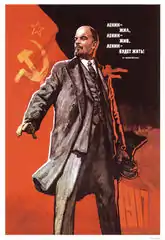Champagne socialist
The term "champagne socialist" is a snarl word used primarily by folks who believe in shooting the messenger that people who have been the beneficiaries of capitalism should be precluded from criticizing its failures and shortcomings.

| We control what you think with Language |
| Said and done |
| Jargon, buzzwords, slogans |
v - t - e |
“”My experience is that ‘brocialists' don’t openly embrace patriarchy; they deny it’s a problem. Or they minimise it. They direct your attention elsewhere: you should be focusing on class. You’re being divisive. You’re just middle class (quelle horreur!). Or they attack a straw ‘feminism’ that is supposedly ‘bourgeois’ and has nothing to say about class or other axes of oppression. Or they just ignore it. To me that’s quite straightforward. Obviously it would be difficult, given their egalitarian commitments, to openly defend a gendered hierarchy; but their defensiveness about this issue suggests they associate a challenge to patriarchy with some sort of ‘loss’ for themselves. The question is, what do they have to lose? |
| —Richard Seymour[1] |
“”Nikita Khrushchev: The difference between you and I, is that I came from peasant stock, but you are the son of a wealthy landlord. Mao Zedong: Well, there is one similarity; each of us is traitor to his class. |
In other words, those who have eight cows shouldn't try to redistribute your three. The term was first used in 1906 by George Cary Eggleston,
Hilariously, Karl Marx himself may arguably qualify under the term, considering he was supported by his best friend — the wealthy playboy Friedrich Engels — who shared Marx's views.
Some examples
An example of a champagne socialist could be Vladimir Lenin, father of the Russian Revolution who despite being a Communist, was a spoiled rich kid who had never set foot on a farm or in a factory where the oppressed proletariat worked.
In contrast to the stereotypical champagne socialist, however, Lenin lived quite an ascetic existence; he was a vegetarian, did not consume alcohol, and was allegedly asexual. Other people in the Communist ruling class were usually not so austere though, in the USSR or elsewhere. They moved into the Kremlin, former home of the Tsar, and Mao did the same thing with the Forbidden City in Beijing, enjoying the finest things while the common people decidedly did not.
A joke about this from Russia goes as follows: Leonid Brezhnev (then Soviet leader) goes and visits his mother. He tells her of all the things he's gotten now: the best apartments in the Kremlin, a private limousine which takes him around Moscow, and special Party shops that stock goods that no one else has access to. His mother replies: "All that is very fine, Leonid, but what if the Communists come to power and take them away?"
A more definite example would be the British comedian Russell Brand, who is constantly talking about "revolution" despite being privately worth fifteen million dollars, living in Beverly Hills and previously being married to singer Katy Perry.
Another potential[3] example is Marxist historian Eric Hobsbawm, who left 1.8 million pounds to his family at the time of his death.[4]
Other terms
- Limousine liberal and latte liberal (in the United States)
- Brosocialist and Manarchist (amongst feminists)
- Bourgeois bohemian (France, though David Brooks tried to appropriate it)
- Chardonnay socialist (generally in Australia and New Zealand)
- Coffee-house communist (in India[note 1])
- Shiraz socialist
- Gauche caviar (France)
- Progre(sista) de salón (Spain)
- Kystbanesocialist (Denmark)
- Grachtengordelsocialist (Netherlands)
- SWPL (from the satirical blog Stuff White People Like)
See also
- Cloth coat Republican — Its diametrical opposite, though no less self-righteous.
- Irony
Notes
- It comes from the Indian Coffee House, which is a federation of worker co-operatives
References
- Laurie Penny on Brand, iconoclasm, and a woman's place in the revolution
- Blind Alleys, p. 206
- The source for this claim is admittedly the Daily Fail. As such, draw your own conclusions.
- Leading Marxist historian Eric Hobsbawm leaves £1.8million estate in his will
You can help RationalWiki by expanding it.